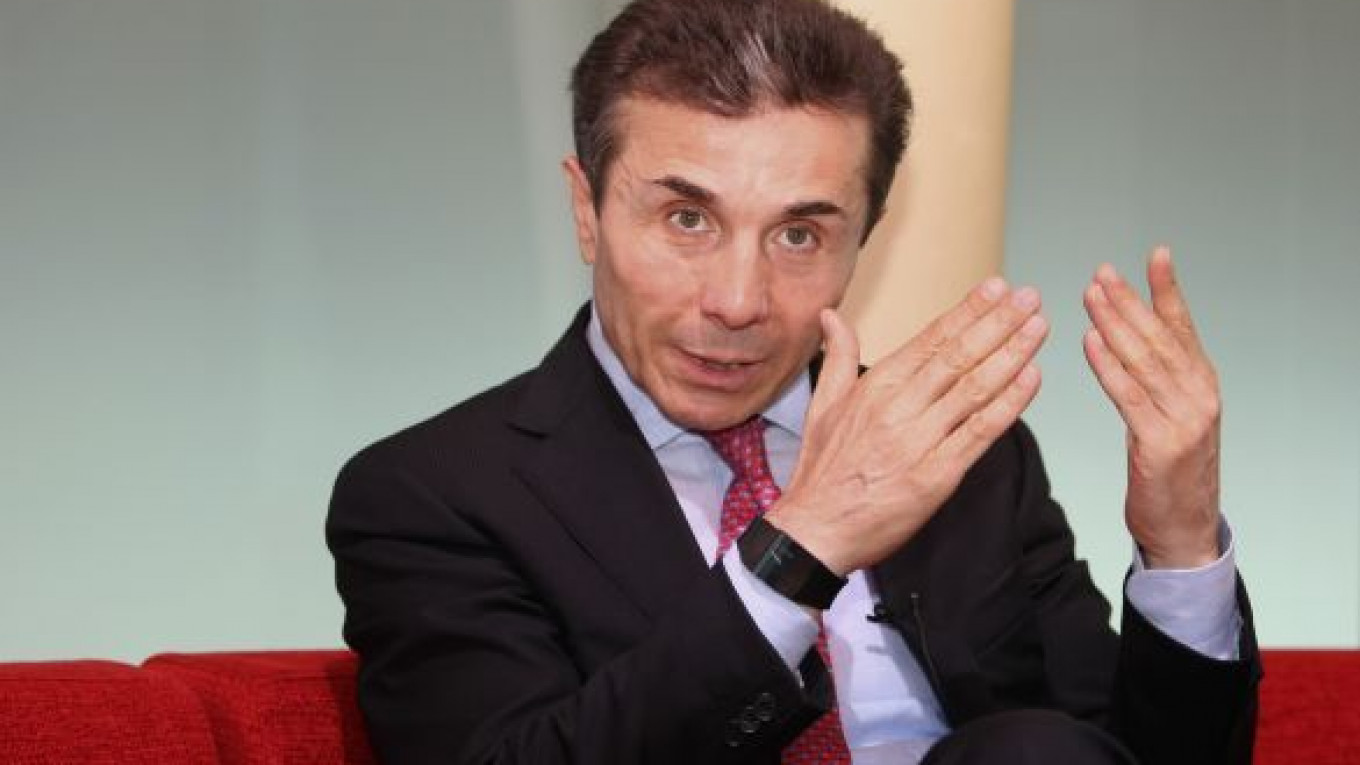BRUSSELS — New Georgian Prime Minister Bidzina Ivanishvili said that "from today" he will work closely with his bitter political rival President Mikheil Saakashvili, rejecting suggestions that he has used the courts to settle scores after his election win.
The billionaire businessman seized a parliamentary majority from Saakashvili's party last month, and the detention of a former minister and two army commanders on charges of insulting servicemen a year ago has raised fears of a witch-hunt.
Some of the Western governments that would like to see Georgia as a stable and democratic partner fear setbacks for the rule of law as Ivanishvili "cohabits" with Saakashvili until a presidential election next year.
But in an interview, Ivanishvili pledged to start a more constructive approach.
"Starting from today, I personally will address and have relations toward Saakashvili and the previous government the way Georgian culture … deserves," he said Wednesday. "We will not address them the way they deserve, as they have acted against us as the Georgian opposition."
NATO Secretary-General Anders Fogh Rasmussen told Ivanishvili during a visit to alliance headquarters in Brussels that any perception that trials were politically motivated would hurt the image of Georgia and of his government.
Ivanishvili, who signaled that relations with the West were a priority by making Brussels his first foreign trip, played down any differences with Rasmussen.
Before the election, Ivanishvili's Georgian Dream coalition had accused Saakashvili's government of political persecution after legal moves against opposition figures.
"I have assured [Rasmussen] from my side that all of our actions will be transparent and in no case will we have a selective justice, no political retribution," he said, speaking through an interpreter. "But at the same time, the law will take effect and those who have committed a crime will be dealt with according to the law."
Ivanishvili vowed to strengthen democratic institutions, re-establish a free court system, free the media from intimidation and stamp out corruption.
He offered to give NATO a role in making sure prosecutions of officials were handled in an open way, but Rasmussen turned down the offer, saying there was no need to create new institutions.
In Brussels this week, Ivanishvili, whom Saakashvili accuses of being too close to Russia, has made clear that he shares Saakashvili's priority of closer cooperation with the European Union and NATO, with an eye to eventual membership of both.
Saakashvili secured a promise of NATO membership in 2008. But within months, Russia and Georgia fought a war over the breakaway regions of South Ossetia and Abkhazia, increasing qualms in Europe and NATO about letting Georgia into Europe's mainstream.
Ivanishvili said he had agreed with Rasmussen that Georgia must make every effort to normalize its relationship with Russia, which has recognized South Ossetia and Abkhazia as independent states. Georgia broke off diplomatic relations with Russia after the war.
"In a first stage, we need to attempt to normalize cultural and commercial relations … and in the future to reinstate the territorial integrity of Georgia also," Ivanishvili said.
Ivanishvili also pledged to take steps to boost the Georgian economy, which he said suffered from monopolies and cartel agreements, and to create an attractive environment for foreign investment.
"The main problem we face is the economy. I personally … will do everything to create jobs … and attempt to bring back emigrants who are forced to migrate," he said.
Related articles:
A Message from The Moscow Times:
Dear readers,
We are facing unprecedented challenges. Russia's Prosecutor General's Office has designated The Moscow Times as an "undesirable" organization, criminalizing our work and putting our staff at risk of prosecution. This follows our earlier unjust labeling as a "foreign agent."
These actions are direct attempts to silence independent journalism in Russia. The authorities claim our work "discredits the decisions of the Russian leadership." We see things differently: we strive to provide accurate, unbiased reporting on Russia.
We, the journalists of The Moscow Times, refuse to be silenced. But to continue our work, we need your help.
Your support, no matter how small, makes a world of difference. If you can, please support us monthly starting from just $2. It's quick to set up, and every contribution makes a significant impact.
By supporting The Moscow Times, you're defending open, independent journalism in the face of repression. Thank you for standing with us.
Remind me later.






